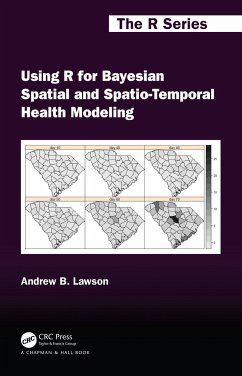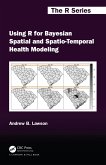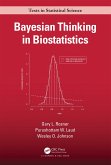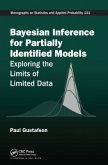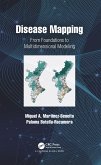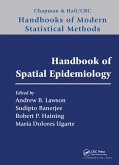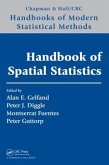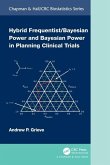Progressively more and more attention has been paid to how location affects health outcomes. The area of disease mapping focusses on these problems, and the Bayesian paradigm has a major role to play in the understanding of the complex interplay of context and individual predisposition in such studies of disease. Using R for Bayesian Spatial and Spatio-Temporal Health Modeling provides a major resource for those interested in applying Bayesian methodology in small area health data studies.
Features:
Review of R graphics relevant to spatial health dataOverview of Bayesian methods and Bayesian hierarchical modeling as applied to spatial dataBayesian Computation and goodness-of-fitReview of basic Bayesian disease mapping modelsSpatio-temporal modeling with MCMC and INLASpecial topics include multivariate models, survival analysis, missing data, measurement error, variable selection, individual event modeling, and infectious disease modelingSoftware for fitting models based on BRugs, Nimble, CARBayes and INLAProvides code relevant to fitting all examples throughout the book at a supplementary website
The book fills a void in the literature and available software, providing a crucial link for students and professionals alike to engage in the analysis of spatial and spatio-temporal health data from a Bayesian perspective using R. The book emphasizes the use of MCMC via Nimble, BRugs, and CARBAyes, but also includes INLA for comparative purposes. In addition, a wide range of packages useful in the analysis of geo-referenced spatial data are employed and code is provided. It will likely become a key reference for researchers and students from biostatistics, epidemiology, public health, and environmental science.
Features:
Review of R graphics relevant to spatial health dataOverview of Bayesian methods and Bayesian hierarchical modeling as applied to spatial dataBayesian Computation and goodness-of-fitReview of basic Bayesian disease mapping modelsSpatio-temporal modeling with MCMC and INLASpecial topics include multivariate models, survival analysis, missing data, measurement error, variable selection, individual event modeling, and infectious disease modelingSoftware for fitting models based on BRugs, Nimble, CARBayes and INLAProvides code relevant to fitting all examples throughout the book at a supplementary website
The book fills a void in the literature and available software, providing a crucial link for students and professionals alike to engage in the analysis of spatial and spatio-temporal health data from a Bayesian perspective using R. The book emphasizes the use of MCMC via Nimble, BRugs, and CARBAyes, but also includes INLA for comparative purposes. In addition, a wide range of packages useful in the analysis of geo-referenced spatial data are employed and code is provided. It will likely become a key reference for researchers and students from biostatistics, epidemiology, public health, and environmental science.

